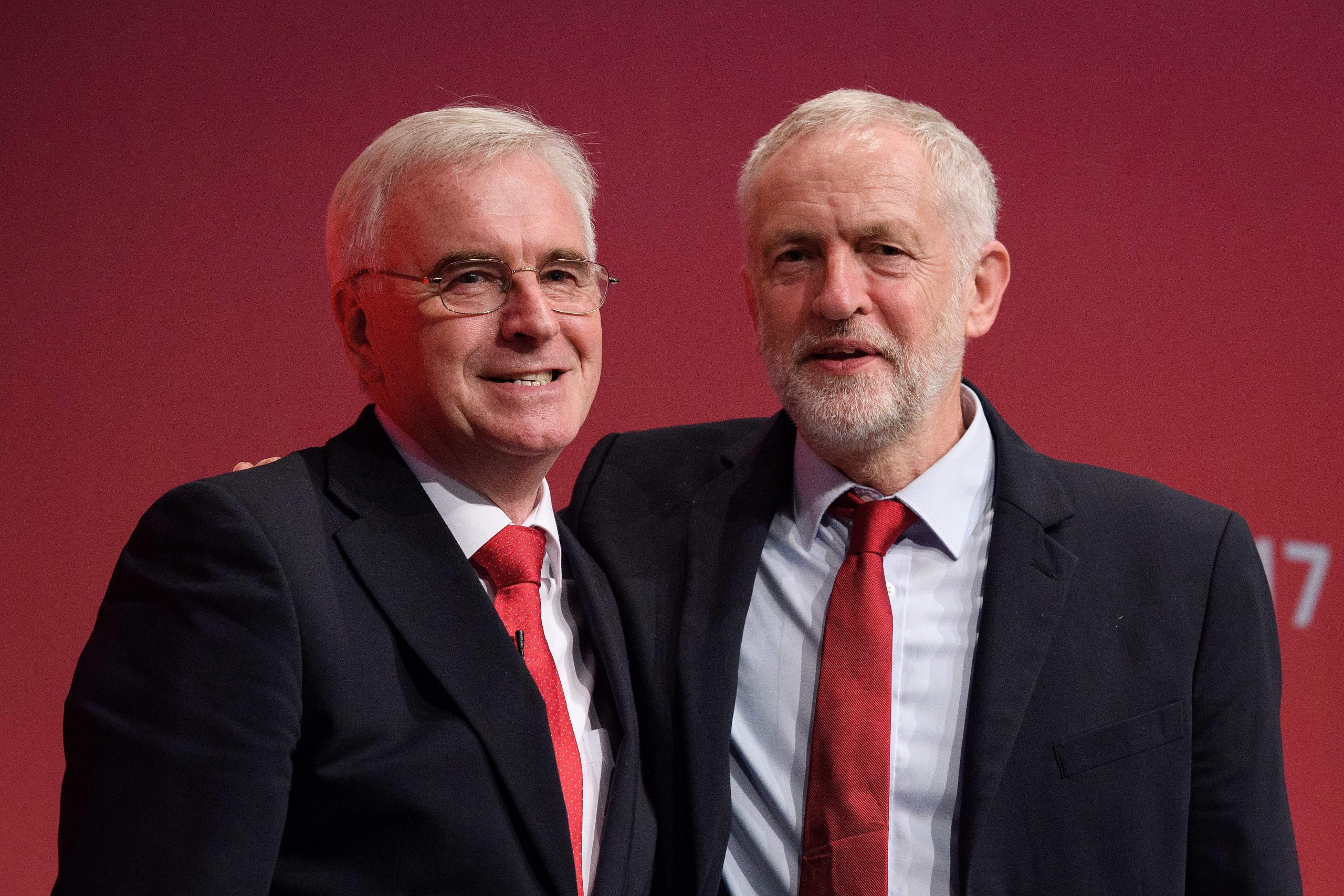
After being elected as the Labour MP for Liverpool West Derby in 1983, Bob Wareing used to make a yearly pilgrimage to Russia. He witnessed the end of the Soviet Union and, after 1991, how communist authoritarianism gave way to an oligarchic regime. His post-Soviet travels were a particular source of amusement for John McDonnell, who, like Wareing, was a member of the Socialist Campaign Group of left-wing Labour MPs. Whenever Wareing returned from Moscow, McDonnell would ask his colleague cheekily if he had noticed anything different since his earlier visits.
McDonnell is now shadow chancellor and Wareing is dead. But among Labour MPs from the party’s centre and right, a suspicion lingers that – like Wareing – McDonnell’s friend Jeremy Corbyn doesn’t realise that anything has changed about Russia or the West since 1991. In the view of Corbynsceptic MPs, their leader’s default setting is a friendly cheer to the traditional enemies of the United States and reflexive opposition to any show of force by the UK or its allies.
For Conservatives, the same feeling is a cause for hope, even among MPs who are depressed by Theresa May, Brexit or both. “Britain won’t make Jeremy Corbyn prime minister,” one cabinet minister assured me in the aftermath of the Labour leader’s response to the poisoning of former Russian spy Sergei Skripal and his daughter, Yulia, “because he hates this country and people won’t accept that”.
McDonnell doesn’t believe that his closest ally hates Britain, but the shadow chancellor does regard foreign policy as a distraction from the leadership’s mission to win power at the next election. Corbyn, too, wants to win next time, and is willing to compromise where and when necessary.
Foreign policy, however, is Corbyn’s passion and that makes him reluctant to abandon long-held convictions for political expediency. Europe is an exception: one thing that unites Corbyn with most Labour MPs is that he doesn’t regard the EU as “properly” abroad. Corbyn’s long-standing principles, and the relative importance he and McDonnell attach to foreign policy, are part of the reason why the two men have been significantly at odds for the first time, over Britain’s stand-off with Russia.
McDonnell was quick to declare that no Labour MP should appear on the state propaganda channel RT (formerly Russia Today) and that the Kremlin was responsible unequivocally for the attack on the Skripals. Corbyn stopped repeatedly short of assigning blame to the Russian government, and his spokesman rejected McDonnell’s call for Labour MPs to boycott RT, instead suggesting the issue be kept “under review”.
Corbyn’s spokesman in this instance was communications and strategy chief Seumas Milne, who, in a break with convention, was named by the Press Association and newspapers after comparing the intelligence on the Salisbury attack to the flawed case for war in Iraq. “There’s a history in relation to WMD and intelligence which is problematic to put it mildly,” he told parliamentary lobby reporters on 14 March. As a consequence, the spin doctor, in Westminster-speak, became “part of the story”, not least because of his long public record as a defender of Vladimir Putin and a critic of Nato.
Milne’s Guardian columns have been exhumed gleefully by Corbyn’s internal and external critics. But it is a misreading of the situation to imagine that Corbyn outsources his foreign policy positions to Milne, or indeed to anyone. The blunt truth is that Corbyn’s most senior foreign policy adviser is called “Jeremy Corbyn”.
In any case, the most important political relationship in the modern Labour Party remains that between leader and shadow chancellor, and when their partnership is discussed, the ghosts of Tony Blair and Gordon Brown inevitably loom large.
The comparison is all the more tempting because, as with Blair and Brown, the Corbyn-McDonnell political friendship stretches back to the 1980s and Labour’s last long period in opposition.
Corbyn and McDonnell have been friends and political allies for three decades and the differences between them amount to small divisions over strategy rather than any great schism over principle – they like to text each other interesting articles during shadow cabinet meetings. And although it suited both men to pretend otherwise, Blair and Brown were initially, like Corbyn and McDonnell, friends and allies who had minor divisions over strategy and policy. The long years in office shattered their relationship, but with hindsight it is clear that their only fundamental policy disagreement was over whether Britain should adopt the euro. Ed Miliband and Ed Balls had a more congenial personal relationship, but their policy and strategic divisions were far larger.
Could Labour’s top two end up going the way of Blair and Brown? Unlike the New Labour duo, or indeed the two Eds, in the Corbyn-McDonnell era the shadow Treasury team is not a separate power base but, in effect, an annexe of the leader’s office. That institutional and political closeness is given human form by Seb Corbyn, the Labour leader’s son and McDonnell’s chief of staff. Another factor is age: the moment for McDonnell (who, at 66, is two years Corbyn’s junior) to run for leader would have been if Corbyn had stood down in 2016.
For Blair and Brown, it was victory that poisoned their relationship – and the question of when the latter should take over. For Corbyn and his shadow chancellor, defeat at the next election would present a greater challenge, forcing the left to reckon with the part its foreign policies played in turning off voters. Still, just as Moscow has changed since its Soviet days, so the Labour Party’s psychodrama has moved on.
This article appears in the 21 Mar 2018 issue of the New Statesman, Easter special



